DO YOU KNOW WHO SAINT Ignatius of Antioch WAS ?
Bishop of Antioch
The return of Emperor Trajan to Rome, after conquering Dacia —the actual Rumania—, was celebrated with one hundred and twenty three days of games. One thousand gladiators perished in the circus.
There were also a lot of sentenced people, to be devoured by the beasts, just for the mere fact of being Christians. Among them was the bishop of Antioch, Ignatius.
Detained and judged, the prisoner abandoned the great city of Syria towards Rome, carried with chains and escorted by a detachment of ten soldiers. It was probably the year 106, or the beginnings of year 107.
Ignatius was the second or third bishop of Antioch —the testimonies are not unanimous— after the apostle St Peter occupied the see. According to a document from the fourth-fifth century, he was disciple of the apostle St John. Above all Ignatius was a shepherd of souls, in love with Christ and just concerned in taking care of the flock trusted to him.
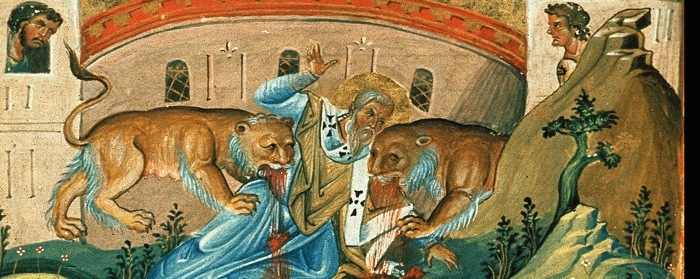
His best portrait is given to us by himself in the seven letters he wrote to several Christian communities on his way to Rome. Four of them were written in Smyrna directed to the Churches in Ephesus, Magnesia, Tralles and Rome; the other three were written in Troas to the Churches in Philadelphia, Smyrna and to the bishop of this one, Polycarp, in which he gives him some advice about how to develop his duties as a bishop.
Because of their content, this letters have a great doctrinal interest, because of which St Ignatius is one of the Church Fathers. In them we find for the first time the expression “Catholic Church” referred to the totality of the Christians. A lot of the subjects that the letter deals with are determined by the polemic against the most divulged heresies of the time, especially Docetism, which denied the reality of the incarnation of the Verb.
St Ignatius strongly states the true divinity and the true humanity of the Son of God. Another important point is the doctrine related to the Church. St Ignatius considers the being of the Church deeply incrusted in the Holy Trinity and, at the same time, exposes the doctrine of the Church as the Body of Christ. Its unity is patent in the hierarchic structure: without it there is no Church and no possibility of celebrating the Eucharist.
Bishops, priests and deacons constitute this hierarchy. It is a beautiful testimony, because of its clearness and its antiquity. All the community must obey the bishop, who represents God, the invisible bishop. The priests and deacons must subdue to the bishop, up to the point that, if one of them acts aloof from the hierarchy, he says, “is not pure in his conscience”. Also concerning this, and referring to his own martyrdom, he asserts in one of the letters: “I offer myself as rescue for those who subdue to the bishop, to the priests and the deacons. And I hope that it would be conceded to me to enter the part of God with them!”
|
|
|||
Ignatius shows to be a man with greatness of heart. He thanks, touched, the fineness of the fraternity of the early Christians that, the moment they knew about his captivity, acted lavishly towards him, gave him what was necessary for the journey and offered to go with him and to share his fate. They ran to comfort him from the near cities, but it is them who returned removed and filled with love to God.
Thanks to his intense inner life, St Ignatius tries to spread as much good as he cans in the places in which he passes, opening for others the treasure of the gifts that the Holy Spirit gave him. With a great humility he states: “I do not give you orders as if I were someone”, but his charity knows to use a harsh tone when necessary: he doesn’t avoid correcting even if it hurts, neither denouncing a heresy or a moral digression.
This is the main purpose of St Ignatius’ epistles. Through his journey he observes and listens to what is happening: he quickly discerns the old mistakes already fought repeatedly by the Apostles, whose evil root kept budding everywhere: Docetism, which proclaimed an apparent Christ, not really incarnated; Gnosticism, which pretended to dissolve Christianity, by reducing it to an auto-salvation science based in the knowledge of pseudo-philosophical truths, the Jewish tendencies, the ethic harshness…
And above all, a doctrine that wanted to divide the Church in two opposite groups, facing the faithful against the bishop and his priests.
In the initial salutation of the letter to the Romans, Ignatius outdoes himself and treats the Church of Rome in a different way, compared with the other Christian communities he writes to, with special acclamations.
The general tone of this salutation can be taken as a testimony of Rome’s primacy, specially considering that it comes from the bishop of Antioch: an antique see, who counts St Peter as its first Bishop, established in one of the biggest and more influential cities of the Empire, in which the followers of Christ first assumed the name of Christians.
For St Ignatius the life of a Christian consists in imitating Christ, as He imitated the Father.
That imitation must go further than just following his teachings, it must imitate him specially in His passion and death; it is from there that the saint’s enthusiasm towards martyrdom comes from: “I am wheat of God, and I must be milled by the beasts’ teeth, in order to be presented as pure bread of Christ”, he writes to the Romans; and encourages bishop Polycarp: “Keep steady, as an anvil beaten by the hammer. It is of a great athlete to be brazed, and yet, to conquer”.
On the other hand this imitation is eased because Christ lives in us like in a temple and we get to live in Him; that is why we Christians are unified one with each other, because we are united to Christ.
In this letters the holiness of the bishop of Antioch is reflected; it would leave an indelible print in the Christians of his time and in the Church forever: that of a saint who, as many others in his time, walks joyfully to martyrdom, to meet his God.
“Beg to Christ for me in order that, through this instruments [the beasts], I accomplish to be a sacrifice for God. I do not give you orders like Peter and Paul. They were Apostles; I am a sentenced one; they, free; I, until know, a slave. But if I suffer martyrdom, I will be a freedman of Jesus Christ and in Him I will resurrect free (…). For me it is better to die for Jesus than to rule over the confines of the earth. I search He who died for us. I love He who resurrected for us.”

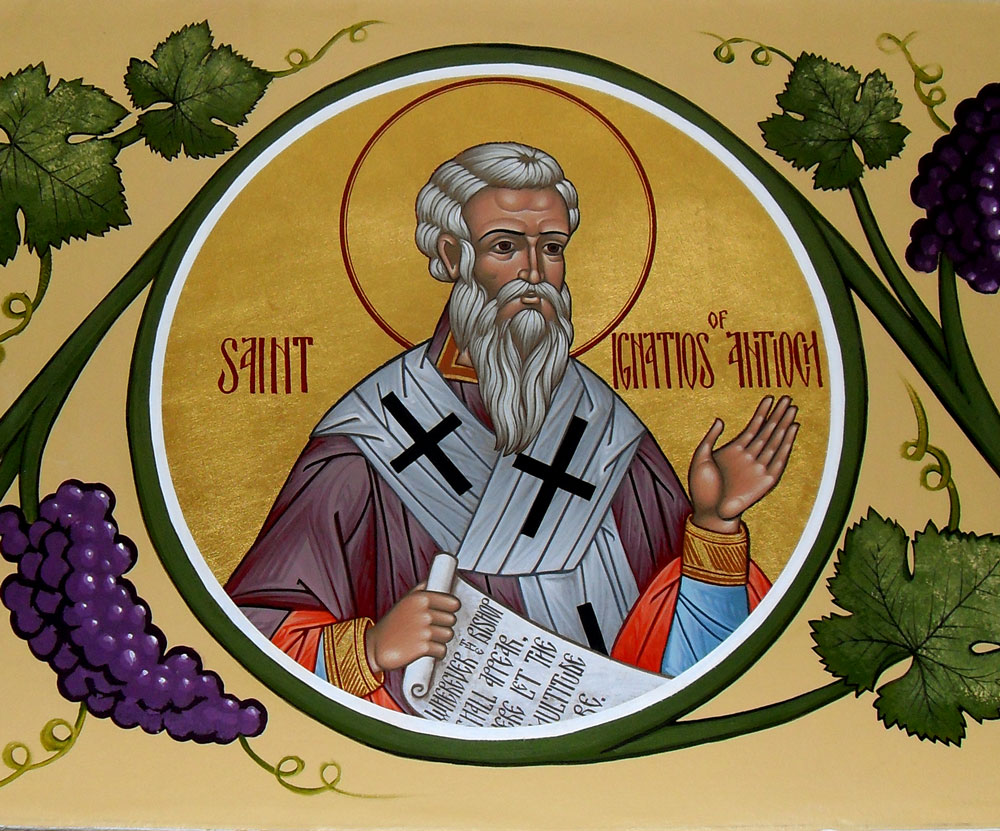

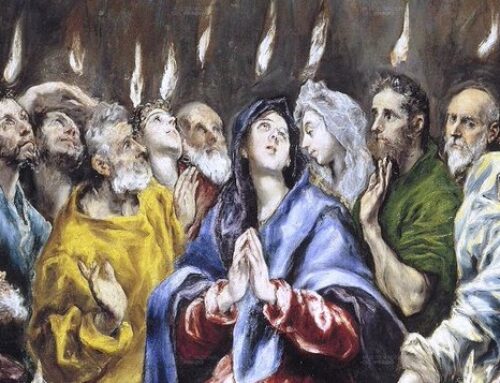

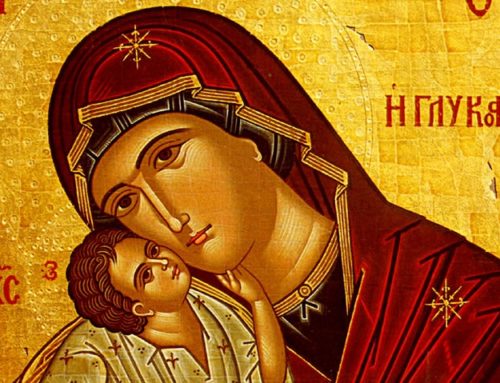
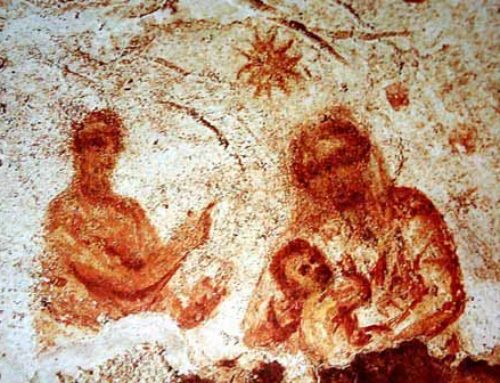

Leave A Comment
You must be logged in to post a comment.